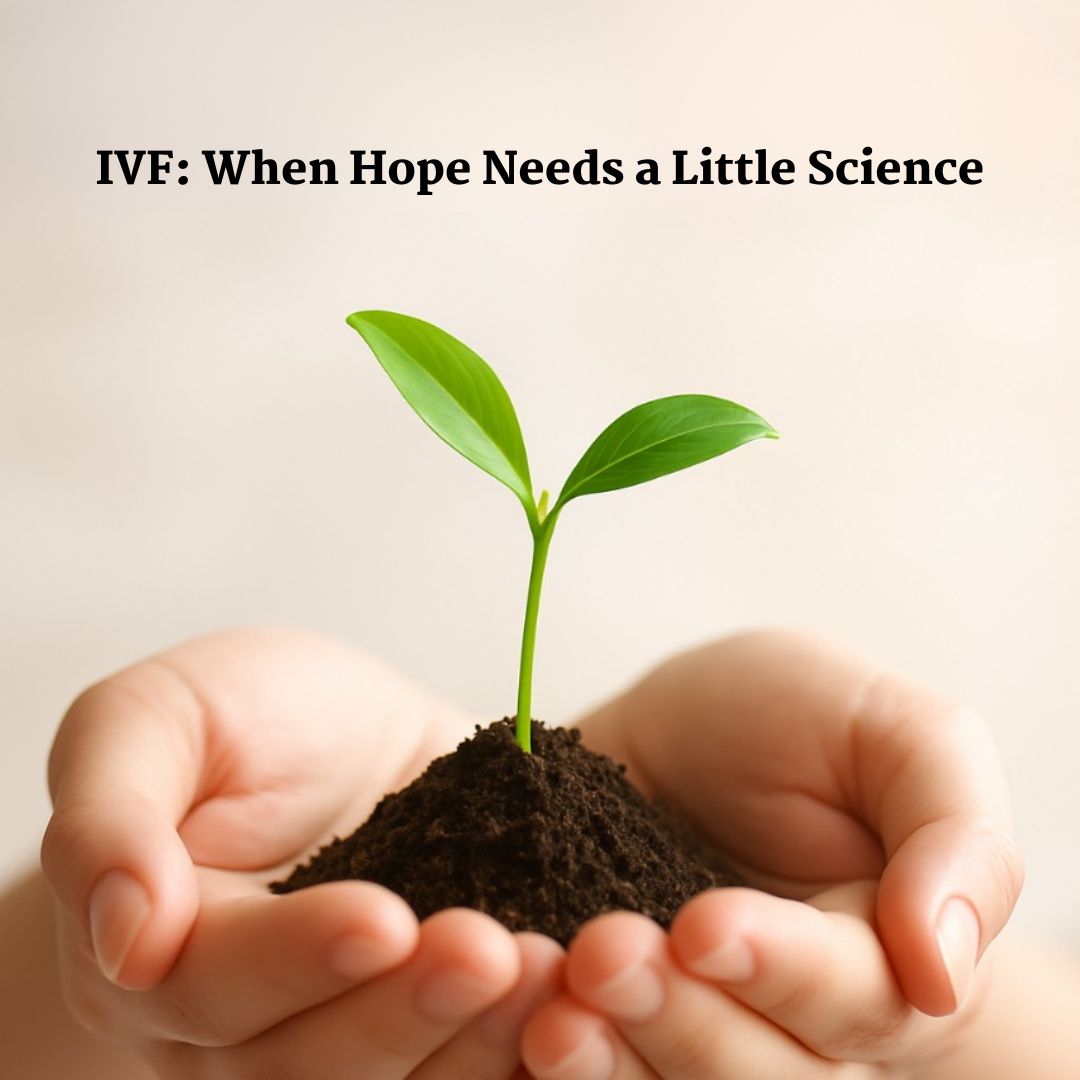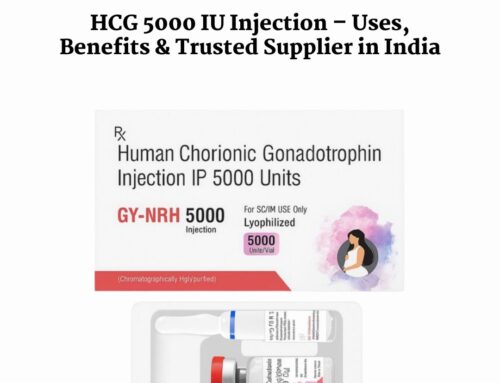By Quinek Lifesciences Introduction to In Vitro Fertilization (IVF) and Fertility Challenges
Starting a family is a deeply personal dream for many. However, some couples face difficulties conceiving naturally. That’s where science steps in. One of the most reliable scientific solutions for infertility is In Vitro Fertilization (IVF). At Quinek Lifesciences, we believe everyone deserves access to clear and honest information about fertility treatments. In this article, we explain IVF, its benefits, the treatment process, who can consider it, and how Quinek Lifesciences supports ethical and safe fertility care.
What is In Vitro Fertilization (IVF) and How Does It Work?
In Vitro Fertilization (IVF) is a medical technique where a doctor combines an egg with sperm outside the body in a laboratory. After fertilization, the embryo is placed into the uterus to grow naturally like any other pregnancy.
The term ‘In Vitro’ means “in glass,” referring to the lab dish used for fertilization. IVF enables millions of families to conceive when other methods fail. As a result, it remains one of the most widely trusted assisted reproductive technologies (ART).
When Should You Consider IVF Treatment for Infertility?
Doctors usually suggest IVF when simpler treatments haven’t succeeded. You might consider IVF in the following situations:
- Your fallopian tubes are blocked or damaged
- You face persistent ovulation issues
- Your partner has low sperm count or motility
- Doctors find no clear cause for infertility
- Previous fertility treatments were unsuccessful
- You want to avoid passing on a genetic disorder
- You are a same-sex couple or single parent using a donor
Every fertility journey is different. Therefore, a certified fertility doctor can help determine the best approach for you.
Step-by-Step IVF Process: How In Vitro Fertilization is Performed
Understanding each stage of IVF helps ease stress and builds confidence. Let’s walk through it together:
1. Ovarian Stimulation in the IVF Process
To begin, doctors prescribe fertility medicines that stimulate the ovaries to produce several mature eggs. Consequently, this step boosts the chances of successful fertilization.
2. Monitoring and Egg Retrieval in IVF
Next, your doctor monitors egg development using ultrasound and blood tests. When the eggs mature, they retrieve them during a minor outpatient procedure under light sedation.
3. Laboratory Fertilization and ICSI in IVF
Then, the doctor combines the eggs with sperm in a lab dish. If needed, a technician injects a single sperm into an egg using a method called Intracytoplasmic Sperm Injection (ICSI).
4. Embryo Culture and Development During IVF
Afterward, fertilized eggs begin developing into embryos. Embryologists monitor their growth closely and select the healthiest embryos for transfer. As a result, the likelihood of a successful pregnancy improves.
5. Embryo Transfer into Uterus in the IVF Cycle
Later, the doctor gently transfers one or more embryos into the uterus using a thin, flexible catheter. Fortunately, this procedure is simple and quick and rarely requires anesthesia.
6. Pregnancy Test and Confirmation After IVF
Finally, about two weeks later, you return for a blood test to check if implantation succeeded and pregnancy has started. With any luck, you’ll receive good news.
Is IVF Safe for Women and Babies?
When experienced professionals perform IVF, it remains a safe and effective treatment. While some risks and side effects may occur, doctors monitor and manage them carefully. Since age and health can influence results, following your doctor’s guidance is crucial.
How to Support Your IVF Journey Emotionally and Physically
Emotional and physical wellness plays a key role. Therefore, you should eat a balanced diet, avoid alcohol and smoking, and manage your stress. In addition, stay connected with your doctor and loved ones. Together, they can help you feel supported every step of the way.
Quinek Lifesciences: Supporting Every Stage of the IVF Journey
At Quinek Lifesciences, we provide high-quality specialty medicines that support each step of the IVF journey. From ovarian stimulation to embryo support, our trusted solutions meet rigorous quality standards.
Moreover, our partnerships with fertility clinics and doctors ensure reliable care. We also believe that education builds trust. That’s why we help families understand their treatment at every stage.

Frequently Asked Questions About In Vitro Fertilization (IVF)
Is IVF painful?
Most steps cause minimal discomfort. Doctors make procedures like egg retrieval and embryo transfer as comfortable as possible.
How long does one IVF cycle take?
One full IVF cycle usually lasts 4 to 6 weeks. However, some patients may need multiple cycles.
Can IVF treat male infertility?
Yes. IVF combined with ICSI helps overcome low sperm count or motility problems. Additionally, doctors can recommend the best option for your case.
Are IVF babies healthy?
Yes, IVF babies are generally as healthy as naturally conceived babies. Your doctor may recommend extra care if needed.
How should couples prepare before starting IVF?
Good preparation includes medical check-ups, healthy diet, regular moderate exercise, and emotional readiness. It helps to have open discussions with your doctor and partner.
Can lifestyle affect IVF success?
Yes. Maintaining a healthy weight, eating nutritious food, managing stress, and avoiding smoking or alcohol can support better outcomes.
What happens to unused embryos?
Some couples choose to freeze unused healthy embryos for future attempts. This is called embryo freezing or cryopreservation.
Can IVF be emotionally challenging?
Yes. IVF can bring emotional ups and downs. Counselling, support groups, or talking to trusted family and friends can help couples cope.
Final Thoughts on Choosing In Vitro Fertilization
Beginning IVF takes strength and hope. With proper medical care and emotional support, the process becomes easier. Therefore, stay informed, ask questions, and move forward at your own pace.
At Quinek Lifesciences, we proudly walk with you through this journey—offering reliable medicines and compassionate guidance every step of the way.
Disclaimer: This content is for educational purposes only. Always consult a fertility specialist for personalized medical advice.






